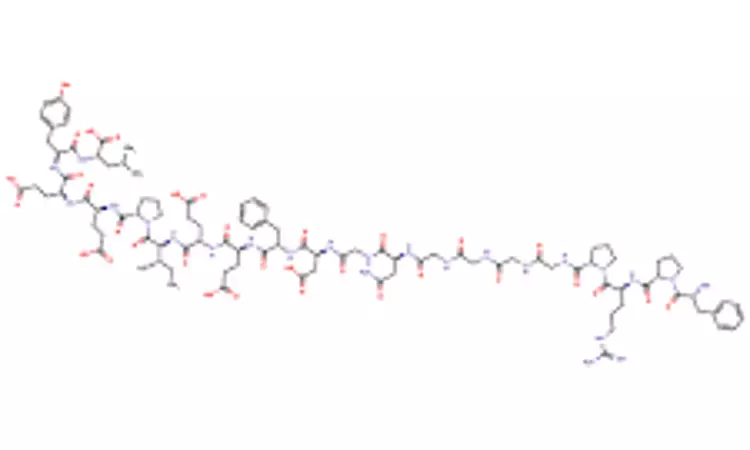- Home
- Medical news & Guidelines
- Anesthesiology
- Cardiology and CTVS
- Critical Care
- Dentistry
- Dermatology
- Diabetes and Endocrinology
- ENT
- Gastroenterology
- Medicine
- Nephrology
- Neurology
- Obstretics-Gynaecology
- Oncology
- Ophthalmology
- Orthopaedics
- Pediatrics-Neonatology
- Psychiatry
- Pulmonology
- Radiology
- Surgery
- Urology
- Laboratory Medicine
- Diet
- Nursing
- Paramedical
- Physiotherapy
- Health news
- Fact Check
- Bone Health Fact Check
- Brain Health Fact Check
- Cancer Related Fact Check
- Child Care Fact Check
- Dental and oral health fact check
- Diabetes and metabolic health fact check
- Diet and Nutrition Fact Check
- Eye and ENT Care Fact Check
- Fitness fact check
- Gut health fact check
- Heart health fact check
- Kidney health fact check
- Medical education fact check
- Men's health fact check
- Respiratory fact check
- Skin and hair care fact check
- Vaccine and Immunization fact check
- Women's health fact check
- AYUSH
- State News
- Andaman and Nicobar Islands
- Andhra Pradesh
- Arunachal Pradesh
- Assam
- Bihar
- Chandigarh
- Chattisgarh
- Dadra and Nagar Haveli
- Daman and Diu
- Delhi
- Goa
- Gujarat
- Haryana
- Himachal Pradesh
- Jammu & Kashmir
- Jharkhand
- Karnataka
- Kerala
- Ladakh
- Lakshadweep
- Madhya Pradesh
- Maharashtra
- Manipur
- Meghalaya
- Mizoram
- Nagaland
- Odisha
- Puducherry
- Punjab
- Rajasthan
- Sikkim
- Tamil Nadu
- Telangana
- Tripura
- Uttar Pradesh
- Uttrakhand
- West Bengal
- Medical Education
- Industry
Bivalirudin plus post-PCI high-dose anticoagulation during STEMI PCI bests heparin therapy for CV outcomes

Bivalirudin plus post-PCI high-dose anticoagulation during STEMI PCI bests heparin therapy for CV outcomes suggests a new study published in the Coronary Artery Disease
The use of bivalirudin-based anticoagulation over heparin-based anticoagulation for coronary percutaneous intervention has been debated for a long time. Multiple trials have shown promising benefits of bivalirudin over heparin therapy with the most recent addition being the BRIGHT-4 trial. We performed a meta-analysis to assess evidence from these trials, focusing on the coronary intervention of the STEMI population.
This meta-analysis was performed based on PRISMA guidelines after registering in PROSPERO (CRD42023394701). Databases were searched for relevant articles published before January 2023. Pertinent data from the included studies were extracted and analyzed using RevMan v5.4.
RESULTS
Out of 2375 studies evaluated, 13 randomized control trials with 24 360 acute ST-elevation myocardial infarction patients were included for analysis. The bivalirudin-based anticoagulation reduced the net clinical events (OR 0.75, CI 0.61-0.92), major adverse cardiac or cerebral events (OR 0.85, CI 0.74-0.98), any bleeding (OR 0.61, CI 0.45-0.83), major bleeding (OR 0.54, CI 0.39-0.75), all-cause mortality (OR 0.79, CI 0.67-0.92) and cardiac mortality (OR 0.78, CI 0.65-0.93) significantly without increasing the risk of any stent thrombosis (OR 0.92, 95% CI 0.52-1.61), definite stent thrombosis (OR 1.17, 95% CI 0.62-2.22) and acute stent thrombosis (OR 2.06, 95% CI 0.69-6.09) significantly at 30 days.
Based on this meta-analysis, bivalirudin plus a post-PCI high-dose infusion-based anticoagulation during STEMI PCI has significant benefits over heparin therapy for cardiovascular outcomes without a significant increase in the risk of thrombotic outcomes.
Reference:
Oli, Prakash Raj, et al. "Bivalirudin Versus Heparin in STEMI After BRIGHT-4 Trial: an Updated Meta-analysis." Coronary Artery Disease, 2023.
Keywords:
Bivalirudin, plus, post-PCI, high-dose, anticoagulation, during, STEMI, PCI, bests, heparin, therapy, CV outcomes, Coronary Artery Disease, Oli, Prakash Raj
Dr. Shravani Dali has completed her BDS from Pravara institute of medical sciences, loni. Following which she extensively worked in the healthcare sector for 2+ years. She has been actively involved in writing blogs in field of health and wellness. Currently she is pursuing her Masters of public health-health administration from Tata institute of social sciences. She can be contacted at editorial@medicaldialogues.in.
Dr Kamal Kant Kohli-MBBS, DTCD- a chest specialist with more than 30 years of practice and a flair for writing clinical articles, Dr Kamal Kant Kohli joined Medical Dialogues as a Chief Editor of Medical News. Besides writing articles, as an editor, he proofreads and verifies all the medical content published on Medical Dialogues including those coming from journals, studies,medical conferences,guidelines etc. Email: drkohli@medicaldialogues.in. Contact no. 011-43720751


